| Euro RSCG Gets Advertising Rights For World Series Hockey |
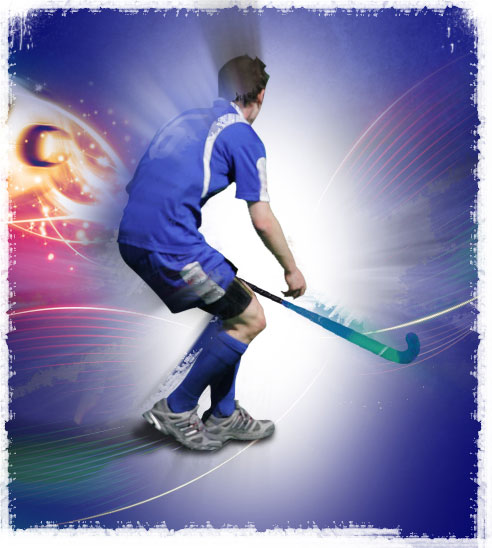
Photograph courtesy World Series Hockey Facebook Fan Page
 uro RSCG has won the advertising rights of Nimbus Sports' World Series Hockey (WSH), which will be played from December 17, 2011 - January 22, 2012. As part of the contract, Euro RSCG's Mumbai office will handle the entire advertising duties of the World Series Hockey event. uro RSCG has won the advertising rights of Nimbus Sports' World Series Hockey (WSH), which will be played from December 17, 2011 - January 22, 2012. As part of the contract, Euro RSCG's Mumbai office will handle the entire advertising duties of the World Series Hockey event.
Satbir Singh, Managing Partner and Chief Creative Officer, Euro RSCG India, "Euro's creative duties for this project will span 360 degrees across television, print, digital, activation, outdoor and radio. We will work on the tournament's pre-launch buzz as well as match-day action. I'm looking forward to working on this project, especially since I have been a hockey player myself."
Here are some points to ponder for Euro RSCG, as they prepare to define and sell the World Series Hockey 'brand' to viewers:
1. Where is the Player Talent?
Per the FIH World Rankings, the top 4 men's hockey nations in the world are 1 - Australia, 2 - Germany, 3 - Netherlands, 4 - England. Germany is the defending Olympic champion, while Australia is the defending World Cup champion.
World Series Hockey does not feature even a single active player from these top 4 hockey nations. World Series Hockey will comprise 40 foreign players and 146 Indian players. The ratio should have been the exact opposite - 40 Indian players and 146 foreign players.
Does India, ranked #9 in the world, really have 146 internationals who can play world class hockey? No Indian has ever won the FIH World Player of the Year award. No Indian has ever won the FIH World Junior Player of the Year award. India has not even reached the semi-finals of an FIH world-level event for the past 3 decades. New Zealand, with a population of around 4 million (same as the city of Ahmedabad) has a higher world hockey ranking than India. And here we are, loading World Series Hockey with 146 Indian players.
80% of the players in USA's National Hockey League (NHL), the richest ice hockey league in the world, are either Canadian or European. Only 20% of the NHL comprised home-grown American players. The NHL drafts players based on quality, not nationality, thus making it a truly world-class league.
India's national hockey coach Michael Nobbs has labeled the World Series Hockey as a competition for national team discards, and over-the-hill and retired professionals. Even if this is partially true, it reveals a lot on the quality of talent that will be present in the World Series Hockey.
2. Where is the Coaching Talent?
5 of the 8 World Series Hockey coaches are Indians - Harendra Singh, Rajinder Singh, Vasudevan Bhaskaran, Jude Felix and Gundeep Singh. None of these coaches have led teams to either the Olympic gold or World Cup title or Champions Trophy gold. Where is the coaching talent in World Series Hockey?
It is ironical that Michael Nobbs is good enough to coach the national hockey team of India to the Asian Champions Trophy gold, but not good enough to coach a Franchise/Club team of World Series Hockey.
Do the Franchises have a say in who will coach their team, or are they limited to picking only from this coaching pool as determined by the organisers?
3. Artificial Player-Team Associations
In the Olympics, Commonwealth Games and Asian Games, a player is a resident of the country he represents. In the national hockey championship or National Games, a player is a resident of the state he represents. In domestic tournaments, the player is an employee of the organisation he represents (e.g., Indian Oil, Air India, Railways, etc.).
In contrast, World Series Hockey players do not live in the city they represent, nor are they employees of the Franchise that they represent. They are short-term contractors of temporary teams of mix-and-match players, with the team having co-opted the city name purely for marketing purposes.
No amount of 30-second promos can gloss over the fact that player-team associations in a timeshare league are temporary and non-unique in nature. It is difficult to have year-round fan loyalties or sustain viewer interest or buy promotional merchandise for artificial teams in a temporary league.
4. Timeshare League
Top sporting properties around the world like the National Football League, English Premier League and National Basketball Assoication operate for 8 to 10 months in an year. In contrast, the World Series Hockey runs for 5 weeks out of the 52 weeks in an year.
Franchises are supposed to spend their marketing rupees to create affinity programmes to build a fan base - for teams that exist for 5 weeks in an year! How can one sustain fan loyalty without a corresponding product on the field?
A Timeshare League has no fixed schedule. Every year, it has to pick a window of time where most of the players do not have any other international committments, and then schedule the league accordingly. At its core, World Series Hockey is a club-level league, and club matches will always take second priority to international matches.
To understand the limitation of a Timeshare Model, take a hypothetical scenario where Kingfisher Airlines (owned by IPL team owner Vijay Mallya) only operates for 5 weeks in an year, has a makeshift crew mixed-and-matched from other airlines, does not even own the planes which it flies, and whose schedule changes every year based on when a 45-day window is available. Such an airlines will never survive, and similarly, a league based on such a model will not survive in the long run.
To summarize, Euro RSCG has to ask themselves some hard questions about Player Talent, Coaching Talent, Artificial Fan-Team Associations and the Timeshare Nature of the League, as they prepare to define and sell the World Series Hockey 'brand' to viewers.
|
| India Beat Pakistan to Win Inaugural Asian Men's Champions Trophy Hockey |
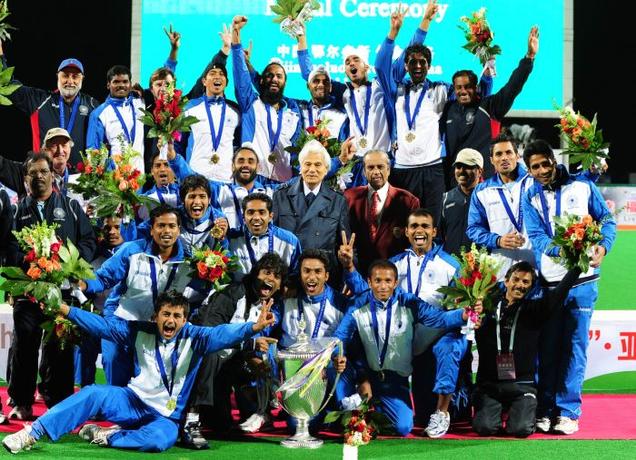
The victorious Indian team at Ordos, Photograph courtesy Hindu
 he inaugural Asian Men's Champions Trophy Hockey was held in Ordos, China, from September 3-11, 2011. The top six teams of the 2010 Guangzhou Asian Games (Pakistan, Malaysia, India, South Korea, China, Japan) took part in the tournament. he inaugural Asian Men's Champions Trophy Hockey was held in Ordos, China, from September 3-11, 2011. The top six teams of the 2010 Guangzhou Asian Games (Pakistan, Malaysia, India, South Korea, China, Japan) took part in the tournament.
This was the first tournament for the new Indian coach Michael Nobbs. The format of the tournament was a round-robin league among all teams, followed by playoffs for the final positions.
India finished as the only unbeaten team in the tournament. India's match results en route to the title were as follows:
| Stage |
Date |
Result |
Goal Scorers - India |
| Round Robin |
Sep 3 |
India 5 - China 0 |
Gurvinder Singh Chandi (5 min)
Yuvraj Valmeeki (21 min)
Rupinder Pal Singh (41 min), PC
Rajpal Singh (43 min)
V. R. Raghunath (62 min) , PC |
| |
Sep 4 |
India 1 - Japan 1 |
Gurvinder Singh Chandi (22 min) |
| |
Sep 6 |
India 5 - South Korea 3 |
Rupinder Pal Singh (4 min), PS
Gurvinder Singh Chandi (5 min)
S. V. Sunil (7 min)
Rajpal Singh (24 min)
Yuvraj Valmeeki (62 min) |
| |
Sep 7 |
India 2 - Malaysia 2 |
Ravi Pal (9 min)
Danish Mujtaba (52 min) |
| |
Sep 9 |
India 2 - Pakistan 2 |
Rupinder Pal Singh (46 min), PC
Danish Mujtaba (53 min) |
| Final |
Sep 11 |
India 0 (4)- Pakistan 0 (2) |
Danish Mujtaba
Rajpal Singh
Yuvraj Valmeeki
Sarvanjeet Singh |
The final standings were as follows: India - 1, Pakistan - 2, Malaysia - 3, Japan - 4, South Korea - 5, China - 6.
The Indian team was as follows:
Goalkeepers: Bharat Chetri, P. R. Sreejesh
Defenders: Rupinder Pal Singh, Harpreet Singh, V. R. Raghunath
Midfielders: Gurbaj Singh, Ignace Tirkey, Manpreet Singh, Manjeet Kullu, Vikas Sharma
Forwards: Rajpal Singh (captain), Danish Mujtaba, Sarvanjeet Singh, S. V. Sunil, Ravi Pal, Gurvinder Singh Chandi, Roshan Minz, Yuvraj Valmeeki
|
| Winless Indian Women Finish Last In Asian Champions Trophy Hockey |
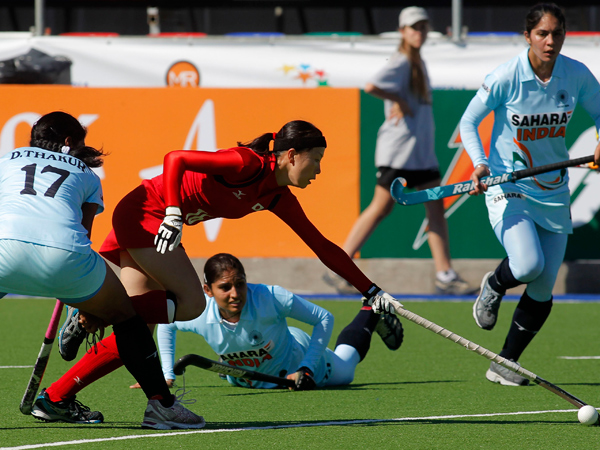
India vs. Japan
 he 2nd Asian Women's Champions Trophy Hockey was held in Ordos, China, from September 4-10, 2011. The top four teams of the 2010 Guangzhou Asian Games (China, South Korea, Japan, India) took part in the tournament. he 2nd Asian Women's Champions Trophy Hockey was held in Ordos, China, from September 4-10, 2011. The top four teams of the 2010 Guangzhou Asian Games (China, South Korea, Japan, India) took part in the tournament.
The format of the tournament was a round-robin league among all teams, followed by playoffs for the final positions.
India lost each and every match that it played, and finished last in the tournament - the complete opposite of the Indian men's team, who went undefeated in the tournament and finished first.
The Indian women's team's match results were as follows:
| Stage |
Date |
Result |
Goal Scorers - India |
| Round Robin |
Sep 4 |
South Korea 4 - India 1 |
Joydeep Kaur, PC |
| |
Sep 6 |
Japan 5 - India 0 |
|
| |
Sep 8 |
China 4 - India 0 |
|
| 3rd vs. 4th |
Sep 10 |
Japan 3 - India 2 (GG) |
Vandana Katariya (7 min)
Rani Rampal (28 min) |
In his tour report after the tournament, manager Ramesh Kollappa listed lack of fitness, poor mental strength and psychological factors as the main reasons for India's poor performance in the tournament. Ramesh mentioned in his report:
"In the bronze medal match, India was leading by two goals, and the focus should have been on holding on to the lead. However, two players - skipper Saba Anjum and Deepika Thakur - were green-carded, which reduced the team to 10 members twice for two minutes each, and eventually the bronze slipped out of our hands."
As an action item, the manager suggested that the services of foreign fitness expert, John David, should be extended to the women's team.
The final positions were as follows: South Korea - 1, China - 2, Japan - 3, India - 4.
The Indian team was as follows:
Goalkeepers: Yogeeta Bali, Savita
Defenders: Joydeep Kaur, Jaspreet Kaur, Th. Pinki Devi
Midfielders: Ritu Rani, Asunta Lakra, Kirandeep Kaur, Mukta Prava Barla, Deepika, Kiran Dahiya
Forwards: Saba Anjum (captain), Jaspreet Kaur Handa, Poonam Rani, Vandana Katariya, Rani, Th. Anuradha Devi, Soundarya Yendala
|
| India Get Bronze Medal in u-18 Asia Cup Women's Hockey |
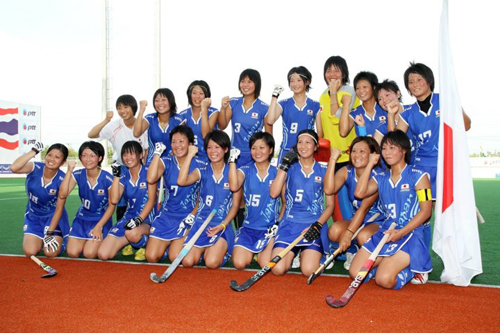
The victorious Japanese u-18 women's hockey team; Photo courtesy Thai Hockey
 he third under-18 hockey Asia Cup was held at the Queen Sirikit Stadium in Bangkok, from September 16-25, 2011. The participating teams were as follows: he third under-18 hockey Asia Cup was held at the Queen Sirikit Stadium in Bangkok, from September 16-25, 2011. The participating teams were as follows:
Pool A: South Korea, Japan, Thailand, Singapore, Chinese Taipei
Pool B: China, India, Malaysia, Sri Lanka, Kazakhstan
India finished 3rd in the tournament, with the following match results:
| Stage |
Date |
Result |
Goal Scorers - India |
| Pool |
Sep 16 |
India 12 - Kazakhastan 0 |
|
| |
Sep 17 |
India 13 - Sri Lanka 0 |
Jaspreet Kaur (2 min)
Neha Goyal (13, 22 min)
Poonam Rani (14, 34 min)
Sandeep Kaur (19 min)
Anupa Barla (33, 65 min)
Namita Toppo (37 min)
Navjot Kaur (42, 55 min)
Leelima Minz (54, 70 min) |
| |
Sep 20 |
India 4 - China 2 |
Navjot Kaur (11 min)
Leelima Minz (34 min)
Poonam Rani (49 min)
Anupa Barla (66 min) |
| |
Sep 22 |
India 4 - Malaysia 1 |
Anupa Barla (13, 55 min)
Poonam Rani (19 min)
Navjot Kaur (57 min) |
| Semi-final |
Sep 23 |
Japan 4 - India 3 |
Navjot Kaur (2 min)
Anupa Barla (52 min)
Jaspreet Kaur (70 min) |
| 3rd vs. 4th |
Sep 25 |
India 2 - South Korea 0 |
Navjot Kaur (38 min)
Anupa Barla (49 min) |
The final standings were: 1 - Japan, 2 - China, 3 - India, 4 - South Korea, 5 - Malaysia, 6 - Singapore, 7 - Thailand, 8 - Sri Lanka, 9 - Kazakhstan, 10 - Chinese Taipei.
The following were the individual awards for the tournament:
- Top Goal Scorer: Nam So Ri (Souith Korea)
- Goalkeeper of the Tournament: Manlika Thonhongsa (Thailand)
- Player of the Tournament: Haduki Nagai (Japan)
- Player of the Final: Luo Tiantian (China)
The Indian team was as follows:
Goalkeepers: Bigan Soy, Swati
Defenders : Jaspreet Kaur, Sandeep Kaur, Apoorva Vishwakarma, Balvinder Kaur Mehra, Deep Grace Ekka
Midfielders: Poonam Rani (captain), Neha, Namita Toppo, Nikki Pradhan, Shivani Bisht
Forwards: Neha Goyal, Navjot Kaur, Surabhi Pradhan, Anupa Barla, Leelima Minz, Renuka Rajput
Officials: B. K. Subramani (Chief Coach), Narendra Singh Saini (Assistant Coach), Preetam Rani Siwach (Assistant Coach), Dr. Shobha Singh (Manager)
|
| Indian Oil Win 41st Gurmeet Memorial Hockey Tournament |
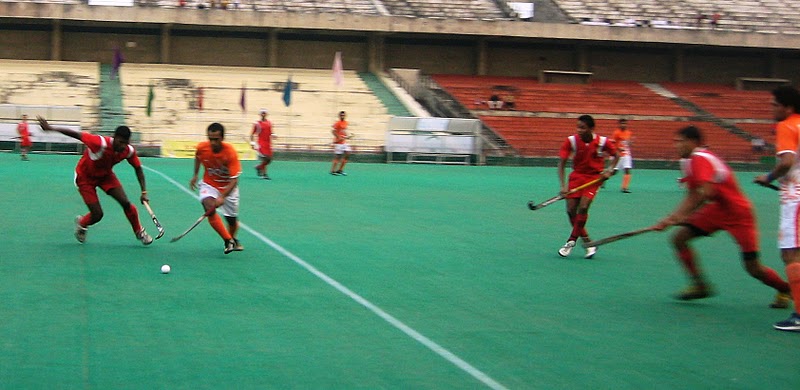
41st S. N. Vohra Gurmeet Memorial Hockey Tournament
 he 41st S. N. Vohra Gurmeet Memorial Hockey Tournament, organised by Rock Rovers, was held at the Sector 42 Hockey Stadium in Chandigadh, from September 23-30, 2011. he 41st S. N. Vohra Gurmeet Memorial Hockey Tournament, organised by Rock Rovers, was held at the Sector 42 Hockey Stadium in Chandigadh, from September 23-30, 2011.
21 top teams of the country took part in the tournament, and were divided into 4 pools. Last year's semi-finalists ONGC, Army XI, Indian Oil Corporation and Punjab & Sindh Bank were given a bye into the quarter-finals.
Indian Oil Corporation and Punjab & Sindh Bank entered the final of the tournament, with the following match results:
| Stage |
Date |
Indian Oil Corporation |
Date |
Punjab & Sindh Bank |
| Quarter-final |
Sep 28 |
beat Namdhari XI 5-2 |
Sep 27 |
beat Indian Overseas Bank 7-1 |
| Semi-final |
Sep 29 |
beat Punjab National Bank 4-3 |
Sep 29 |
beat Bharatiya Nau Sena (Navy) 3-1 |
| Final |
Sep 30 |
beat Punjab & Sindh Bank 5-2 |
|
|
Punjab Minister for Cultural Affairs, Sardar Hira Singh Gabaria, gave away the cash prizes of  75,000 and 75,000 and  50,000 to the winners and runners-up respectively. 50,000 to the winners and runners-up respectively.
The following were the tournament awards:
- Goalkeeper of the Tournament - Jasveer Singh (Punjab National Bank)
- Defender of the Tournament - Gauravjeet (Punjab & Sindh Bank)
- Midfielder of the Tournament - Inderjeet Singh Chadha (Indian Oil Corporation)
- Forward of the Tournament - Ved Prakash (Bharatiya Nau Sena - Indian Navy)
- B. L. Gupta Fairplay Trophy - Bharatiya Nau Sena (Indian Navy)
|
| Photograph of the Month |
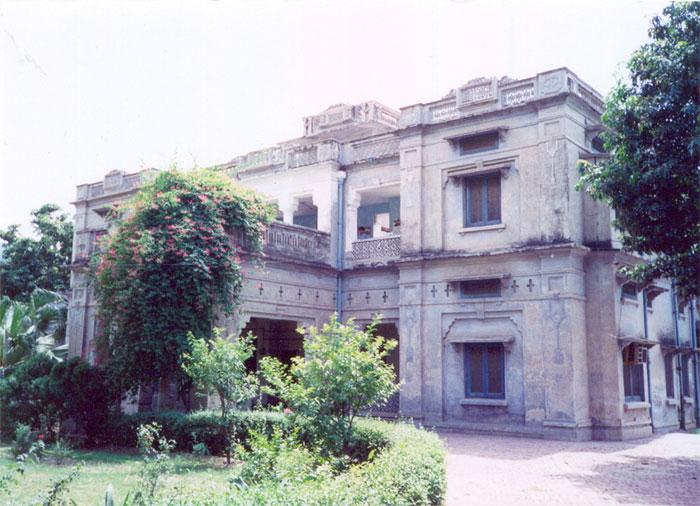
Photograph courtesy Balbir Singh Sr.
 he Photograph of the Month for October 2011 is of a house in Model Town, Lahore. This was the parental home of the wife of triple Olympic gold medallist Balbir Singh Sr. The story behind this house is related in Balbir Singh Sr.'s autobiography, The Golden Hat Trick. he Photograph of the Month for October 2011 is of a house in Model Town, Lahore. This was the parental home of the wife of triple Olympic gold medallist Balbir Singh Sr. The story behind this house is related in Balbir Singh Sr.'s autobiography, The Golden Hat Trick.
In 1953, the Punjab hockey team had an exchange of tours with the West Punjab (in the newly created Pakistan) police team. The officers extended a unique concession by allowing players who had wives originally hailing from West Punjab to bring them along for the tour.
"I must visit our Lahore home" Sushil exclaimed happily the moment she heard of it. "I will see my Lahore once again." The wives of Dharam Singh, Tarlochan Singh, Bakshish Singh and Ram Parkash joined the touring party along with Sushil.
A massive reception awaited us at Lahore. The Pakistani officials lodged us at the Police Lines guest house. But with hundreds of fans and well-wishers calling on us, they shifted us to civilian areas.
Sushil wanted to see her childhood house in Model Town. A special police escort was provided, and we went to see the old 'Sandhu Sadan' the next day. Sushil behaved as if she were going on a pilgrimage. This house, now on alien soil, was witness to our early outpourings of love - it was here that I had first met Sushil.
As we crossed the brown and patchy lawn - it used to be lush green in the 1940s - we were greeted by an old lady. She seemed amazed by the presence of Sushil and the policemen.
"I don't think there is any room in the house for you. Five families are already sharing its roof," she said, thinking that we were prospective tenants.
When Sushil explained to her that she was from India, and that she only wanted to see her old house, the old woman observed painfully, "What an accursed time we are living in. The very people who owned the house once, now have to seek permission to visit the rooms!"
Sushil burst into tears as she saw the ill-kept drawing room that she once used to lovingly decorate with fresh flowers in neat vases. She sobbed bitterly.
|
| Money Matters |
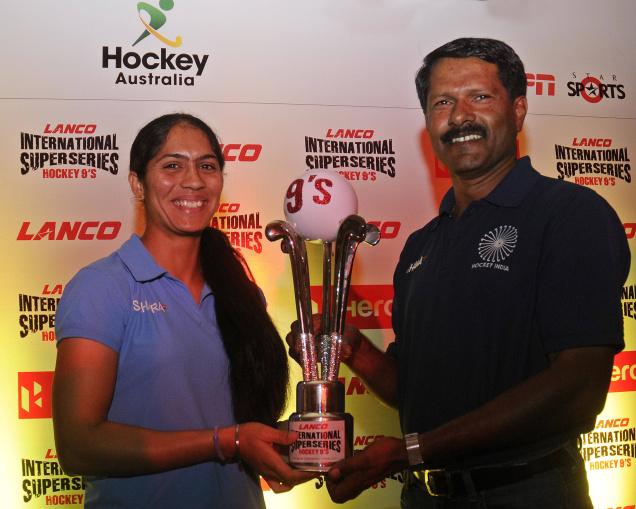
Vice-Captain Jasjeet Kaur Handa and coach C. R. Kumar. Photo by S. Subramaniam of The Hindu
 he Lanco International Super Series will be held in Perth from October 20-23 in conjunction with Commonwealth Heads of Government Meeting (CHOGM), and will feature top men's and women's teams such as Australia, India, Pakistan, New Zealand and Malaysia. he Lanco International Super Series will be held in Perth from October 20-23 in conjunction with Commonwealth Heads of Government Meeting (CHOGM), and will feature top men's and women's teams such as Australia, India, Pakistan, New Zealand and Malaysia.
The tournament has the following stakeholders:
- Host: Hockey Australia
- Broadcaster: ESPN Star Sports (South Asia), Australian Broadcasting Corporation (Autralia)
- Title Sponsor: Lanco Infratech Ltd. (Gurgaon, India)
- Associate Partner: Hero MotoCorp, formerly Hero Honda (Delhi, India)
- Event/Sponsorship Management: Commune Sports (Delhi, India)
The tournament has a radically new format and new rules as listed below, in order to make the game faster and more exciting.
- 9 players on the field per team (usually 11)
- 15 minutes per half (usually 35 min)
- 18 players from each team can play (usually 16)
- Bigger Goals (1 metre wide)
- Unlimited substitutions
- More leniency on foot violations outside the circle unless it is a deliberate infringement
- 1 player from each team must remain in the forward half at all times
- 1-on-1 style penalty shootout for drawn games
- Penalty corners will be 4 attackers facing 3 defenders
Hero MotoCorp Ltd. is the world's largest manufacturer of two-wheeler automobiles, while Lanco Infratech Ltd. is a large Indian business conglomerate involved in construction, power, real estate, and several other segments.
|
| Media Matters |
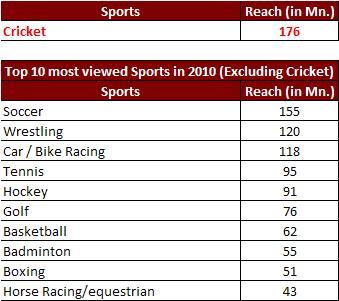
 ccording to a report published by TAM Sports, Football, Wrestling, Racing, Tennis and Hockey were the five most watched non-cricket sports in India in 2010. ccording to a report published by TAM Sports, Football, Wrestling, Racing, Tennis and Hockey were the five most watched non-cricket sports in India in 2010.
The data made available by TAM Media Research indicates that Cricket is the most watched sport in India, with a reach of 176 million viewers in 2010.
Hockey gained the 5th non-cricket viewership spot for 2010 on the strength of just 2 events - the 2010 Hero Honda World Cup and the 2010 Delhi Commonwealth Games. The numbers for hockey would certainly be higher if more than just 2 events were shown live in India in 2010.
Another point to note is that for 4 of the top 5 non-cricket sports (Football, Wrestling, Racing, Tennis), India has minimal to no presence in the world rankings, and what is being shown on Indian television is foreign teams playing on foreign shores.
In football, for example, India with a world ranking of 163 has never ever played in the World Cup, never hosted the World Cup, and no Indian has ever played in any of the European premier division leagues.
Hockey is the only one of the top 5 non-cricket viewed sports in which:
- India has a top 10 ranking (both men and women)
- India hosts the tournaments that are televised
- India (men 's team) wins the occasional tournament or two
With more tournaments hosted in India, and with good marketing of the tournaments, hockey has the biggest potential to climb up to the number 3 spot, behind cricket and football, as the most popular sport watched on television in India.
TAM Sports, launched in April 2009, is a division of TAM Media Research, and was formed to providing monitoring and assessment of returns from sports sponsorship. TAM runs the central, industry authorized, television viewership cell in India. TAM stands for Television Audience Measurement.
|
| Visitor of the Month |
 he October 2011 Visitor of the Month is a retired Sports Authority of India hockey coach Prem Shanker Shukla, who wrote the following to BharatiyaHockey.org: he October 2011 Visitor of the Month is a retired Sports Authority of India hockey coach Prem Shanker Shukla, who wrote the following to BharatiyaHockey.org:
As a coach I have produced around a dozen Internationals.
I have a passion for writing hockey poems and lyrics. To glamourise the sport of hockey, I have produced a CD of eight hockey songs (in Hindi, Punjabi, Bhojpuri and English). I plan to eventually produce 25 hockey songs.
I have also written three books of poems on hockey (one in Hindi, two in English) - the books are titled Poetic Hockey, Kavitamay Hockey, and Sun, Moon and Stars of Hockey.
|
| Fun With Numbers |
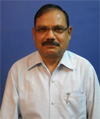
Statistics by B. G. Joshi
 he October 2011 edition of Fun with Numbers lists all the medal winners in Pan Am Games men's and women's hockey - as of the 2007 edition. he October 2011 edition of Fun with Numbers lists all the medal winners in Pan Am Games men's and women's hockey - as of the 2007 edition.
Only two countries have won the gold in Pan Am Games men's hockey - Argentina (7 golds) and Canada (4 golds).
Only one country has won the gold in Pan Am Games women's hockey - Argentina (6 golds in 6 editions held)
PAN AM GAMES HOCKEY MEDAL WINNERS (MEN, WOMEN)
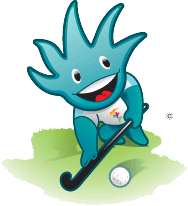 |
Category |
Country |
Appearances |
Gold |
Silver |
Bronze |
Best Finish |
| Men |
Argentina |
11 |
7 |
4 |
- |
7 Gold (1967, 71, 75, 79, 91, 95, 2003) |
| |
Canada |
11 |
4 |
5 |
1 |
4 Gold (1983, 87, 99, 2007) |
| |
Mexico |
7 |
- |
1 |
2 |
1 Silver (1971) |
| |
Trinidad & Tobago |
10 |
- |
1 |
- |
1 Silver (1967) |
| |
USA |
11 |
- |
- |
4 |
4 Bronze (1967, 87, 91, 95) |
| |
Chile |
10 |
- |
- |
2 |
2 Bronze (1983, 2007) |
| |
Cuba |
7 |
- |
- |
2 |
2 Bronze (1999, 2003) |
| Women |
Argentina |
6 |
6 |
- |
- |
6 Gold (1987, 91, 95, 99, 2003, 07) |
| |
USA |
6 |
- |
5 |
1 |
5 Silver (1987, 95, 99, 2003, 07) |
| |
Canada |
6 |
- |
1 |
3 |
1 Silver (1991) |
| |
Uruguay |
2 |
- |
- |
1 |
1 Bronze (2003) |
| |
Netherlands Antilles |
1 |
- |
- |
1 |
1 Bronze (2007) |
|
![]()